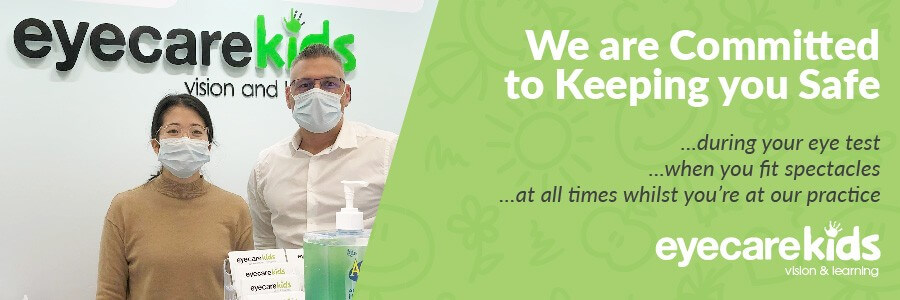Australians have been putting off having eye examinations, planning to visit their optometrists ‘after COVID’. The indicator? A significant drop in total rebateable optometric services under Medicare, according to Optometry Australia’s Chief Clinical Officer, Luke Arundel.
Missing out on crucial eye care examinations have significant consequences. One reason is 90 percent of vision impairment which may lead to blindness are treatable when detected early.
Stroke and Tumour Found during an Eye Test
If you are experiencing vision changes, no matter how ‘mild’ they may seem, please visit your eyecare professional as soon as possible.
“We have recently seen patients with mild symptoms of blurred vision who were examined and diagnosed with potentially life threatening diseases,” states Riki Gibson, a Melbourne optometrist.
“Subsequent referral confirmed the presence of a stroke in one case and a brain tumour in another. These patients are now being treated with specialist care.”
Caught in the nick of time! An eye exam just saved these patients’ lives or spared them from inevitable life-threatening situations.

Blindness Often Starts without Symptoms
Glaucoma is called the ‘silent thief of sight’ and the leading cause of blindness for seniors over the age of 64. Half the people with glaucoma do not know they have it because it starts destroying peripheral vision and gradually works its way into the center.
Age-related macular degeneration causes loss of central vision that is required to see things that are straight ahead. There are no symptoms in its early stages, and vision loss is often experienced when it is already in the intermediate and late stages of the disease.
Diabetic retinopathy causes the blood vessels in the retina change. These abnormal blood vessels stimulate the growth of scar tissue, which can pull the retina away from the back of the eye, causing spots to float in your vision, flashes of light or severe vision loss.
A comprehensive eye test using advanced equipment that allows an optometrist to look through the layers of your eye can help detect these sight-threatening diseases at an early stage, even before you feel the symptoms.
Prolonged Use of Digital Screens Caused a Rise in Digital Eye Strain
With office workers and school-age kids migrating to a work-from-home or study-from-home set-up, more time is spent on digital screens than ever, causing digital eye strain across all ages. This is because when you focus on a computer, your blink rate decreases. Blinking is important to distribute our tear fluid over the cornea. Not blinking enough may cause eye strain, very uncomfortable eyes and may lead to permanent eye damage.
Symptoms of digital eye strain include dry eyes, blurry vision, sensitivity to light, eye fatigue, headaches and difficulty focusing.
Spending just two consecutive hours on a digital device can cause eyestrain and fatigue.
Mask-Associated Dry Eyes
This type of dry eyes has been observed in people who wear masks for long periods. Exhaling under a mask releases warm air. This ‘vertical airflow’ from your mouth through the top of your mask causes a steady breeze blowing into your eyes. This leads to evaporation of your tear film, which exacerbates dry eye symptoms.
Optometry Australia has provided us with enhanced infection control guidelines and protocols to ensure patient safety in optometry practices. Whilst COVID-19 continues to impact our everyday lives, no Australian should have to endure eye discomfort, poor vision, or neglect their eye health.
If you or your child are due for an eye test or are experiencing vision symptoms, no matter how mild, come see us right away. Don’t wait until ‘after COVID’ because until we find a treatment or approved vaccine, this current situation is most likely going to be our new normal.

